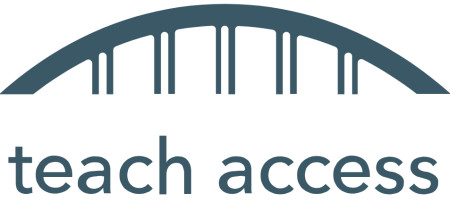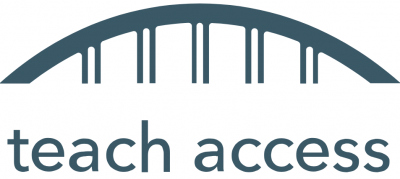Teach Access Releases Two New Free Online Courses to Incorporate Concepts of Digital Accessibility Into Existing Higher Education Curriculum

GRAND RAPIDS, Mich., October 7, 2024 (Newswire.com) - With a grant from the Reader’s Digest Partners for Sight Foundation, Teach Access, a national nonprofit that bridges the digital accessibility skills gap, has released two new self-paced Accessibility Courses that introduce disability and the principles of accessible design across various disciplines. Adding to their existing catalog of more than a dozen courses, these courses are designed to target those teaching Industrial-Organizational Psychology and Organizational Communications at higher education levels. Teach Access understands the importance digital accessibility plays in all facets of the workforce, and they strive to incorporate concepts of digital accessibility in all disciplines. Other courses include Computer Science, Computer Software Engineering, Content Development, Game and Interactive Media, Graphic Design, Human-Computer Interaction, Instructional Technology, Introduction to Disability and Accessible Design, Technical Writing, UX Design, Web Design, and Web Development.
“Reader’s Digest Partners for Sight Foundation is proud to partner with Teach Access, which is driving change by equipping college faculty with the resources to develop accessible technology curricula,” said Dianna Kelly-Naghizadeh, Grant Program Manager. “These programs help ensure that tomorrow's technologists build digital tools that are born accessible. Together, we're expanding opportunities and creating a more inclusive future for all.”
Rolando Méndez, Teach Access’ Director of Education, emphasized the significance of these courses for educators who seek to prepare their students for the increasing demand for accessible digital communication in diverse organizational settings.
“The Industrial-Organizational Psychology course will help educators teach about the importance of hiring more people with disabilities, making recruitment processes more inclusive, and hiring for accessibility skills,” said Méndez. “The Organizational Communications course, on the other hand, will help educators teach about accessible communication strategies for both internal (employee engagement) and external audiences (reaching diverse customers) and best practices for implementing inclusive communication plans throughout an organization. These concepts are critical to creating a world accessible for individuals with disabilities.”
All courses are free and housed in the Canvas Course Market. They aim to assist educators in incorporating essential digital accessibility concepts into their curriculum, ensuring that students are equipped with the knowledge required to create an inclusive world for people with disabilities. Register on the Teach Access website. For more information, email info@teachaccess.org
Source: Teach Access
